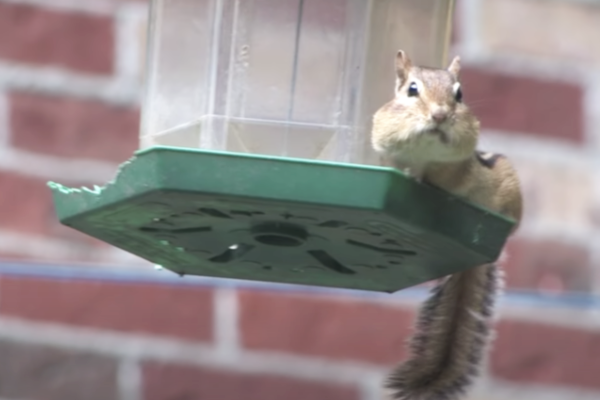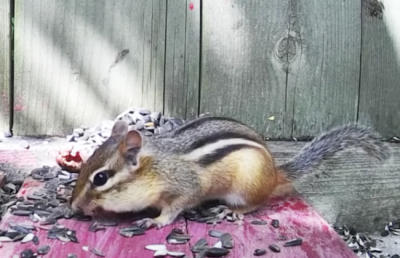Are Chipmunks Dangerous?

Chipmunks are cute, their fuzzy tails, their mouths bulged out when they’re eating, the way they scramble up trees. They look like the type of cute toy you’d buy for a child to play with and cuddle when they’re scared. Unfortunately, they happen to pose threats to humans that some may not be aware of. Below we will describe the threats they pose and the precautions you can take to keep you and your family safe.
Chipmunks are a part of the rodent family, unfortunately, that means they are quite prone to being infected with diseases and being carriers of even more diseases. Disease is the most dangerous thing chipmunks are capable of, their rodent cousins (rats) killed 50 million people in the 14th century by spreading the Bubonic plague throughout Europe for example. Luckily for us 99% of diseases that chipmunks are carriers of are treatable and very easily survivable if medical attention is promptly sought out. Beyond that, with a little know-how, preparation, and caution, everyone can avoid contracting a disease from chipmunks. Whether you are camping, hiking, or just out in the backyard.
Chipmunks can pass on a disease to a human in a few ways, contact with saliva, urine or excrement, bites from fleas/ticks that have been hosted by the chipmunk, or by general contact and handling. As the saying goes, prevention is the best medicine, the most effective way to avoid a disease is to reduce contact to zero. Don’t touch droppings or urine, and if you do, make sure to wash your hands thoroughly.
Don’t approach or attempt to touch chipmunks either, it is unlikely, but they will bite if they feel threatened which can lead to disease. In general, keep your distance and take notice of possible symptoms.
The only real danger a chipmunk will pose beyond disease is biting (which is linked to diseases anyway), beyond that they will simply be a general nuisance. If you happen to live in or are camping in an area that has a high chipmunk population, there are a few things you can do to keep them from getting too close or damaging your property.
Chipmunks are attracted by thick vegetation, nuts, berries, excess garbage, and other possible food sources, cutting those down to a minimum will reduce the likelihood of chipmunks being drawn to your camp or backyard. If they are out of control, rodent traps can also be effective. Beyond that, if you are in the outdoors, keep an eye out and watch for rodents. Being perceptive, alert, and paying attention to your surroundings will generally keep you out of trouble.
Chipmunks are dangerous, they can spread harmful diseases that can land you in a world of hurt if left untreated for too long. However, they are not prone to seek out humans and are unlikely to attack unless threatened. The most effective way to stay safe is to keep your distance and leave them be, as well as washing your hands if you come in contact. Watch for symptoms to indicate disease and stay safe.

